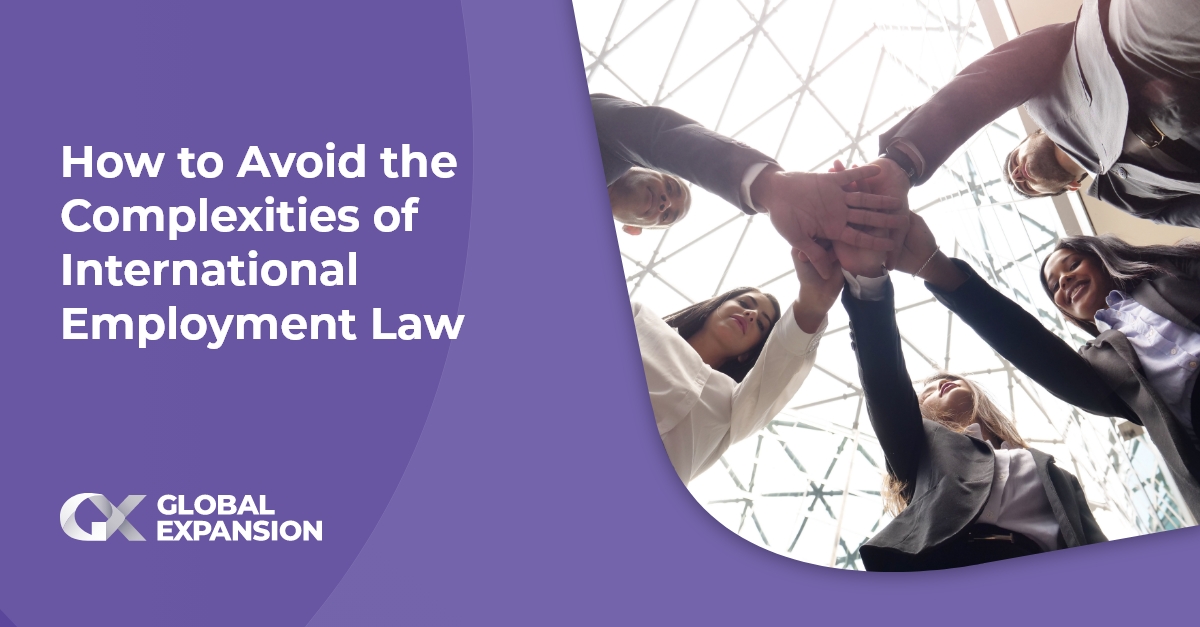The Cost Implications of an Overseas Remote Workforce

The way we hire is changing, with expert global talent now available at our fingertips, no matter where your company is located. But navigating the complexities of hiring in multiple locations can be challenging, particularly if you aren’t an expert in the employment regulations of foreign countries.
Upwork’s Future Workforce Report 2021 identified that 28% of respondents will be fully remote in the next five years. COVID-19 has only accelerated the shift in employer and employee attitudes.
While some companies will continue to hire remote workers within their home countries, others will look further afield to find the best talent and fill potential skills gaps. Hiring overseas remote workers has many benefits, but it doesn’t come without its challenges. We highlight the cost implications of an overseas remote workforce and how best to tackle them.
Equipment Costs
Remote workers need to be provided with the right equipment to do their job. Depending on which country they reside in and whether you purchase the equipment or reimburse the employee, you may have to pay tax on the cost of the equipment. In the UK, you won’t have to pay VAT on business purchases, but this might not be the case in other jurisdictions.
Equipment costs are only part of the equation. If your employees are working from home, they may also be entitled to tax deductions and rebates based on the extra expenses incurred on factors such as electricity and internet costs.
In the UK and some other European countries, employees who work from home are entitled to tax deductions. Whereas in the US, there’s no federal law to support this. This is because it’s state-dependent, so be sure to keep this in mind when supporting your employees.
Travel Expenses
You need to take travel expenses into account when managing a global workforce. You’ll have your own reimbursement policy for travel such as client meetings and other business travel. However, there are other types of travel you’ll need to account for.
One type to consider is whether you expect remote employees to attend your main office on occasion. If this is in another country, this could be costly. Whether you reimburse for travel expenses will depend on where the ‘permanent workplace’ is listed in their contract.
If it’s remote, the likelihood is you’ll have to pay. If the location is the central office, this is where you might hit a gray area. Openly discuss with your employee and find a solution that works for everyone to ensure neither you nor your employee lose out.
Local Tax Laws
When you have employees operating in multiple ‘host’ countries, you’ll have to consider taxes for remote workers. It can start to get complicated when evaluating whether you, as the employer, need to contribute towards taxes in that particular host country.
A lot of this will depend on Permanent Establishment (PE), but there are some factors you should think about when accounting for taxes for remote workers.
By having employees working in foreign locations, you’ll need to investigate whether there’s a legal requirement for you to register as an employer with the local tax authorities, leading to potential corporate tax liabilities. There are also tax implications for the employee to consider, such as Pay As You Earn (PAYE) in the UK.
In the US, once again it depends on the state law where the employee resides. You may have to withhold and pay taxes in the state where the employee works, so if you employ workers who reside in multiple states, this could result in paying tax in more than on geographical location.
Payroll
Having a global workforce can bring about payroll considerations that can be challenging. With employees working in overseas territories, it may result in multiple payroll suppliers, operating in several languages and under different legal requirements.
One option is setting up as a legal entity in the host country, but this can be time-consuming and expensive.
If you’re looking to ensure compliance and save time, consider working with a Global Professional Employer Organization (PEO). They are experts in global employment and can take care of all your legal, HR, payroll, tax and employee benefits needs.
Employment Laws
One of the most important factors to take into account is employment laws. Employment law will vary depending on the country and even state where the employee is working from. It’s, therefore, crucial to conduct the necessary research and checks to ensure you remain compliant.
Employment laws cover everything from immigration to salary and working hour laws and any legislation specific to a particular territory. For example, employment laws vary from state to state in the US and are underpinned by The Fair Labor Standards Act.
The UK has a statutory requirement to give employees who work five days a week 28 days paid annual leave, including national bank holidays. This will vary throughout Europe and the rest of the world.
You must understand each country’s employment laws where you employ remote workers. This will ensure you treat your employees fairly and always remain compliant.
Read more: What Employment Laws Apply to Remote Employees?
Permanent Establishments
A permanent establishment (PE) is where an organization is considered a permanent set-up in a particular location and may be liable to pay corporate taxes. This can result from having employees that operate for your business from an overseas location.
The definition and specifics of a PE vary from country to country, so it’s essential to understand what it means for you in the countries your employees reside in.
If you employ people who permanently reside outside of your organization’s country, then you’ll need to investigate the PE risks. If you aren’t fully compliant with the PE legislation in the host location, then you can incur fines and penalties, experience increased tax audits and suffer reputational damage.
With an issue as complex as PE, it may be worth investing in a partner who can navigate the landscape for you.
Social Security Costs
Known as social security in the US and Europe and national insurance in the UK, social security payments contribute towards benefits and pensions, with employees and employers both making payments towards it.
Again, the legislation surrounding social security alters depending on the jurisdiction and any agreements in place.
If there’s a social security agreement between the country of employment and the host country, this can make things less complicated, meaning social security liability may only occur in the host country, but the employer might need to register and pay towards this.
When there’s no social security agreement, this could result in dual liabilities or even leave the employee without cover in either country. This should be factored into your policy and employment considerations.
Evaluation the Implications
With so many variations in legislation and requirements, it can make the process of hiring globally more complex than recruiting within your native country — but that doesn’t mean you shouldn’t consider the option.
As the world develops, local talent hotspots emerge and businesses turn more towards global hiring, ignoring the possibility of a global workforce could seriously hinder your organization’s growth.
Spending time to understand the implications of employing global talent and working with an expert in the field will allow you to unlock new opportunities for your company and its employees.
Make Everything Easier With GXOne
Take out the guesswork and make the global hiring process seamless with GXOne. Designed to help companies like yours succeed with remote working, GXOne is an all-in-one tool covering the entire employee lifecycle. From tax and benefits to payroll and legislation, you’ll have access to all the expert knowledge that you need.
If you’re ready to find out more about how GXOne can work for you, then hit the button below.
Subscribe to our blog
Receive all the insights and updates as soon as they're published!




